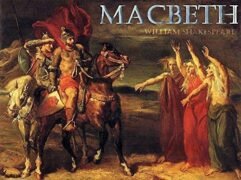By: Prof. C. N. Mangala
When a group of my old students invited me to address them on Baba’s 
Mahasamadhi Day on the subject ‘Sai Baba through a Shakespearean window’, to agree or not to agree was my dilemma, but many are aware that Sai Baba’s birth details are buried in mystery. William Shakespeare, who was baptized on April 26, 1564, was in all probability born on April 23, 1564. April 23 is also the date on which the curtain came down on his life in the year 1616. This commonality of birth and death dates seems dramatic even for Shakespeare, but then, the biggest playwright, that indefinable power called Almighty God that writes our life’s scripts does not like to allow us to fiddle with his script in an ‘as you like it’ manner.
It is in his famous play ‘As You Like It’, that William Shakespeare makes the melancholy Jaques say the great lines: “All the world’s a stage, and all the men and 
women, are merely players; they have their exits and their entrances; and one man in his time plays many parts.” Sai Baba reverberates the same in Sai Satcharitra. He then weaves a poetic tapestry of the different stages of life. The lines echo the Upanishadic concept of Shad Vikaar that life is subject to a six-fold change: birth, subsistence, growth, maturity, decay, and death. Jaques ends his speech, saying: “Last scene of all that ends this strange eventful history, is second childishness and ‘mere oblivion’; sans teeth, sans eyes, sans taste, sans everything.” The dialogue mirrors the belief of
many that life moves on into new cycles of birth and death. Sai Satcharitra may like to add that it moves on in the form of a bundle of thoughts and impressions called vasanas.
Shakespeare’s plays abound in unintended but interesting reflections of Sai Satcharita. In ‘Macbeth’, when Lady Macbeth commits suicide, Shakespeare gives Macbeth the legendary  lines: “Life’s but a walking shadow, a poor player that struts and frets his hour upon the stage and then is heard no more.” When Appa Kulkarni dies at the office of Nana Saheb Chandorkar after conveying Baba’s message to visit Shirdi, to this day, everyone recalls Baba’s prediction of seven deaths due to the plague. Every actor dreams of speaking these lines in which Macbeth calls existence a mere appearance and an illusion on the move. Something that comes across as real but is not the real thing. Sai Satcharita has a word for it -‘Maya’. The Sai Satcharita and Upanishads say that everything that one sees, feels, and experiences in this world are Maya. Maya is neither truth nor untruth. It is all around us, hiding reality and taking us away from it by creating illusions and shadows. Macbeth’s ‘walking shadow’ is Sai Satcharita’s Maya. But what casts this walking shadow? Sai Baba in Sai Satcharita says that this Jagat, this world, and everything in it, is illumined by Brahman, the one light that is the Supreme Truth. Imageries change, but the light itself is unchanging. This eternal light is the consciousness that we are. It is the constant Sakshi, the unattached witness.
lines: “Life’s but a walking shadow, a poor player that struts and frets his hour upon the stage and then is heard no more.” When Appa Kulkarni dies at the office of Nana Saheb Chandorkar after conveying Baba’s message to visit Shirdi, to this day, everyone recalls Baba’s prediction of seven deaths due to the plague. Every actor dreams of speaking these lines in which Macbeth calls existence a mere appearance and an illusion on the move. Something that comes across as real but is not the real thing. Sai Satcharita has a word for it -‘Maya’. The Sai Satcharita and Upanishads say that everything that one sees, feels, and experiences in this world are Maya. Maya is neither truth nor untruth. It is all around us, hiding reality and taking us away from it by creating illusions and shadows. Macbeth’s ‘walking shadow’ is Sai Satcharita’s Maya. But what casts this walking shadow? Sai Baba in Sai Satcharita says that this Jagat, this world, and everything in it, is illumined by Brahman, the one light that is the Supreme Truth. Imageries change, but the light itself is unchanging. This eternal light is the consciousness that we are. It is the constant Sakshi, the unattached witness.
Shakespeare’s ‘Macbeth’ speaks the essence of Natak Deepah, Theatre Lamp, the tenth chapter of Swami Vid yaranya’s 14th century Vedanta text, ‘Panchadashi’: This witness – the consciousness – like the lamp placed in a dancing hall illumines all thoughts as ‘I see’, ‘I hear’, ‘I smell’, ‘I touch’. It illuminates the doer, the action, and all perceived objects. Even Prospero in Shakespeare’s ‘The Tempest’, touches upon this when he says: “We are such stuff as dreams are made on, and our little life is rounded with a sleep.”
And what to say of Hamlet’s “To be, or not to be, that is the question: Whether ’tis nobler in the mind to suffer the slings and arrows of outrageous fortune or to take arms against a sea of troubles and, by opposing, end them.” Standing on the cusp of ‘Atma Gnan’ of self-realization, Hamlet reminds us of Arjuna’s fight with the detractors in his mind at the start of the Mahabharata war. Everyone wants ‘to become’. Very few want ‘to be’. Sai Satcharita teaches us that the secret of life is ‘to be’ at one with one’s divine ethos, duties, and potential, and ‘not to be’ an actor delivering dialogues scripted by a Maya-deluded mind. Reading Shakespeare and Sai Satcharita, in turn, teaches us that Vedanta and Sai Satcharita by any other name reads as profound.

Leave a Reply